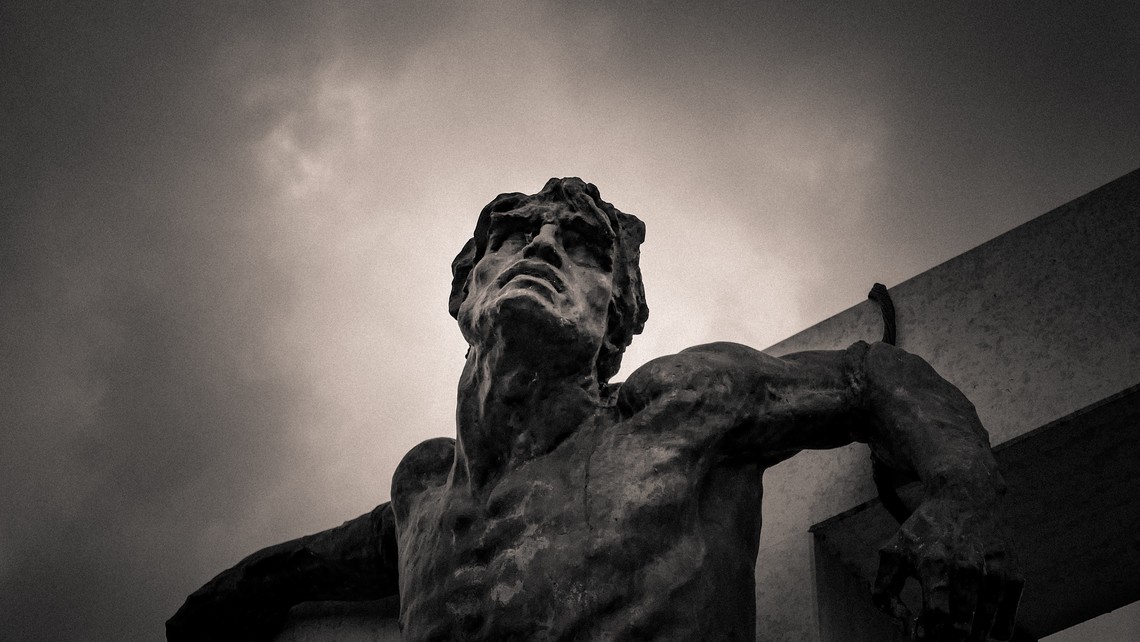
There is an interesting yet profound requirement the people of Israel are told to follow written in the book of Deuteronomy. The last book of the Pentateuch, which reacquaints us with the Law of God-Ten Commandments, directs the entire Israel community to do the following:
And now, Israel, what does the Lord your God require of you, but to fear the Lord your God, to work in all his ways, to love him, to serve the Lord your God with all your heart and with all your soul, and to keep the commandments and the statutes of the Lord, which I command you this day for your good. [1]
The distinction of this passage is the immediate call to recognize and affirm that God is the Alpha and Omega, the beginning and the end. Hence, we should acknowledge and worship him with fear and trembling because He is love. Israel is also reminded to continuously love the Lord without reservation and faithfully adhere to what God has taught them about His law.
In his letter to the Galatians, St. Paul reproves the Galatians that once they have come to know who God is through Jesus Christ, they should not return to the former ways. Instead, they should look upward toward the heights of Heaven as the ultimate quest to be at peace with God in heaven.[2] A clear message of sacrifice and surrender is proposed by St. Paul and echoed in the book Deuteronomy which urges God’s children to faithfully live the law of God as the path to eternal happiness.
Jesus, the divine model of Accompaniment
The way of the cross is uniquely associated with Jesus Christ because it represents his death by crucifixion, representing a singular salvific event between Jesus’ sacrifice and man's salvation. An important distinction must be made between Jesus and the Way of the Cross and our willingness to also journey through our own way of the cross. Because Jesus unites himself with every man through his identity as a human being (fully human) about his identity as fully divine, we discover a desire from Christ to accompany us through His death and resurrection on the cross.
He calls his disciples to take up [their] cross and follow [him], for Christ also suffered for [us], leaving [us] an example so that [we] should follow in his steps. In fact, Jesus desires to associate with his redeeming sacrifice those who were to be its first beneficiaries. This is achieved supremely in the case of his mother, who was associated more intimately than any other person in the mystery of his redemptive suffering. [3]
The Catechism’s position to reveal Jesus’ divine accompaniment is expressed within the Paschal Mystery, where we encounter Jesus, the Son of God, never leaving us in death by the witness of his crucifixion and resurrection. His ascension results in the descent of the Holy Spirit upon Mary and the Apostles. The entire Paschal event has two aspects: by his death, Christ liberates us from sin; by his Resurrection, he opens the way to a new life for us. This new life is, above all, the justification that reinstates us in God’s grace so that as Christ was raised from the dead by the glory of the Father, we, too, might walk in the newness of life.[4]
It is important to understand that the culmination of Jesus’ divine model of accompaniment is the free reception of the Eucharistic sacrifice without any impediment to receiving Him in fidelity and sanctity to the will of the Father. Genuine accompaniment cannot honestly be offered unless there is a deliberate and honest desire to guide the person toward the living representation of Jesus’s death on the Cross through the celebration of the body and blood of Jesus Christ in the Holy Eucharist.
The Mass is, at the same time, and inseparably, the sacrificial memorial in which the sacrifice of the cross is perpetuated and the sacred banquet of communion with the Lord’s body and blood. But the celebration of the Eucharistic sacrifice is wholly directed toward the intimate union of the faithful with Christ through communion. To receive communion is to receive Christ himself, who has offered himself for us.[5]
A movement from accompaniment to conversion to healing
The premise of any form of accompaniment requires a visible intention to guide the person away from all impediments toward developing an active relationship with Jesus Christ. Accompaniment also involves renunciation, renewal, sacrifice, and redemptive suffering. It is a movement from isolation to communion with God, rejection of sin to acceptance of Jesus Christ on the Cross, disillusionment to an encounter with the awe and wonder of Jesus Christ and finally, immersion and insertion into the mysteries of Christ through full communion with Him in the Catholic Church.
The journey of faith to Christ is a journey that requires a renouncement and remission of sin and concludes with a proclamation and profession of faith to the Creed-Jesus Christ. These acts of accompaniment can be best summed up as our journey toward abandonment toward Jesus Christ, which our Lord requires of us. The following prayer by blessed Charles de Foucauld beautifully summarizes our Lord’s requirement:
Father,
I abandon myself into your hands;
do with me what you will.
Whatever you may do, I thank you:
I am ready for all, I accept all.
Let only your will be done in me,
and in all your creatures -
I wish no more than this, O Lord.
Into your hands I commend my soul:
I offer it to you with all the love of my heart,
for I love you, Lord, and so need to give myself,
to surrender myself into your hands without reserve,
and with boundless confidence,
for you are my Father.
Blessed Charles de Foucauld






